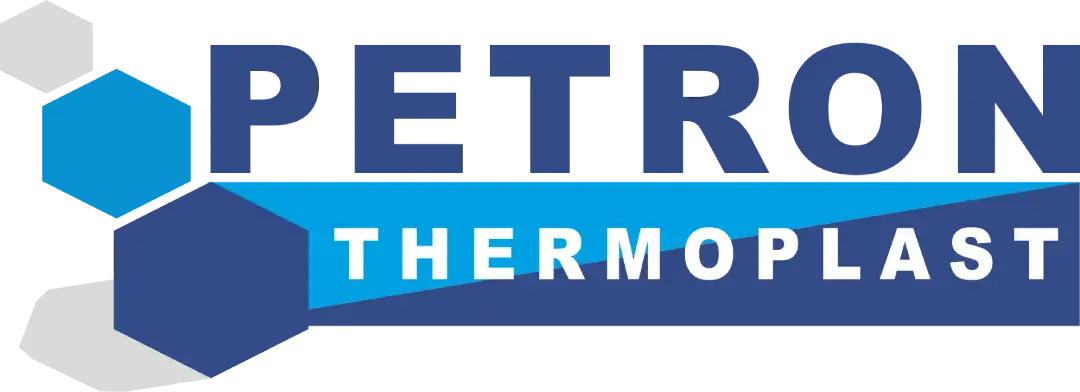
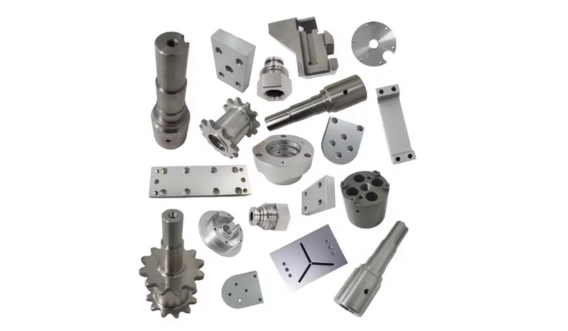
Delrin Machined Parts
Delrin, also known as polyoxymethylene (POM), is a high-performance engineering thermoplastic that has become a core material in various manufacturing applications. Known for its excellent mechanical properties, dimensional stability, ease of machining, and rigidity to −40 °C. Delrin is a preferred choice for creating precision machined parts. Polyoxymethylene has a density of 1.410- 1.420 g/cm 3 . In this, we will tell you more about Delrin machined parts, their advantages, applications, and the technological advancements that make them essential in modern industry.
Delrin Machined Components | Polyoxymethylene (POM)
Delrin Part
Delrin Part
Delrin Part
Delrin Part
Delrin Part
Key Advantages of Delrin Machined Parts
High Performance
Delrin offers high tensile strength, stiffness, and impact resistance, making it suitable for components that withstand mechanical stress and strain.
Dimensional Stability
Delrin maintains its shape and size over a wide range of temperatures and humidity levels, ensuring consistent performance in various environmental conditions.
Low Friction and Wear
Delrin’s low coefficient of friction and high wear resistance make it ideal for applications involving sliding and rotating parts, reducing the need for lubrication and maintenance.
Chemical Resistance
Delrin is resistant to many solvents, oils, and chemicals, which enhances its durability and longevity in chemically aggressive environments.
Ease of Machining
Delrin is easily machinable using standard machining techniques, creating complex and precise parts with tight tolerances.
Cost-Effectiveness
While offering high performance, Delrin remains cost-effective compared to many other engineering plastics and metals, making it a reasonable choice for many applications.
Applications of Delrin Machined Parts
Automotive Industry: In the automotive sector, Delrin machined parts are used in fuel systems, safety systems, and various under-the-hood components. Their durability and precision contribute to vehicle performance and safety.
Medical Devices: Delrin is used to manufacture machined parts for medical devices and diagnostic equipment due to its biocompatibility, dimensional stability, and ease of sterilization.
Industrial Machinery: In industrial applications, Delrin parts such as gears, bearings, and conveyor rollers are valued for their wear resistance and ability to maintain performance under heavy loads and high speeds.
Consumer Electronics: The electronics industry uses Delrin for components like connectors, switches, and housing parts because of its electrical insulating properties and mechanical robustness.
Aerospace: Delrin’s stability, strength, and lightweight properties make it suitable for various aerospace components, contributing to fuel efficiency and performance in aircraft systems.
Consumer Goods: Delrin is also used in consumer goods because of its high-precision and durable parts ranging from kitchen appliances to sporting goods, where reliability and performance are essential.
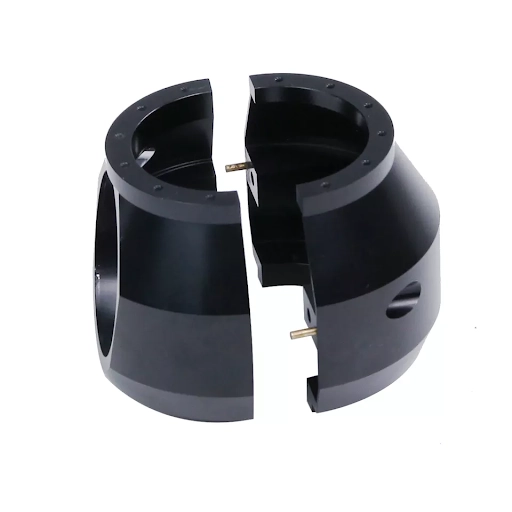
Why you Should Choose Delrin for your Machine?
Tight Tolerances
Delrin’s machinability allows for achieving tight tolerances, which is crucial in applications where precise dimensions and alignment are required for proper functionality.
Complex Geometries
The ability to machine Delrin into complex shapes and intricate designs enables manufacturers to create sophisticated parts that meet specific application needs.
Surface Finish
Delrin can achieve high-quality surface finishes, which is important for parts that interact closely with other components or require an aesthetic-looking appearance.
Consistency
CNC (Computer Numerical Control) machining ensures consistency and repeatability in the production of Delrin parts, maintaining high standards of quality across large production runs.
Plastic Materials We Use
Ultra High Performance Plastic
- PEEK (Polyether Ether Ketone)
- PFSA (Perfluorosulfonic Acid)
- PI (Polyimide)
- TPI (Thermoplastic Polyimide)
- PAI (Polyamide-Imide)
- HTS (High-Throughput Screening)
High Performance Plastic
- PPSU (Polyphenylsulfone)
- PEI (Polyetherimide)
- PESU (Polyethersulfone)
- PSU (Polysulfone)
- PARA (Polyarylamide)
- PPS (Polyphenylene Sulfide)
- PPA (Polyphthalamide)
- LCP (Liquid Crystal Polymer)
- HPN (Hyperform Polypropylene)
- PTFE (Teflon)
Technical Plastics
- PC (Polycarbonate)
- ABS (Acrylonitrile Butadiene Styrene)
- MABS (Methacrylate Acrylonitrile Butadiene Styrene)
- ASA (Acrylonitrile Styrene Acrylate)
- PMMA (Polymethyl Methacrylate)
- PVC (Polyvinyl Chloride)
- PBT (Polybutylene Terephthalate)
- PET (Polyethylene Terephthalate)
- POM (Polyoxymethylene)
- PA 6 (Polyamide)
- PA 6.6/PPE (Polyamide/ Polyphenylene Ether)
- PA 12 (Polyamide)
- TPE (Thermoplastic Elastomer)
- TPU (Thermoplastic Polyurethane)
Standard Plastics
- PS (Polystyrene)
- PVC (Polyvinyl Chloride)
- PP (Polypropylene)
- HDPE (High Density Polyethylene)
- LDPE (Low Density Polyethylene)
- Nylon (C6H11NO)n
- Delrin (Acetal)
- UHMW (Ultra-High-Molecular-Weight Polyethylene)
Main Attributes of Delrin (Polyoxymethylene or POM)
- High Mechanical Strength
- Excellent Dimensional Stability
- Low Friction and Wear Resistance
- Good Chemical Resistance
- High Fatigue Resistance
- Low Moisture Absorption
- Ease of Machining
- Good Electrical Insulation
- Thermal Resistance
- Biocompatibility
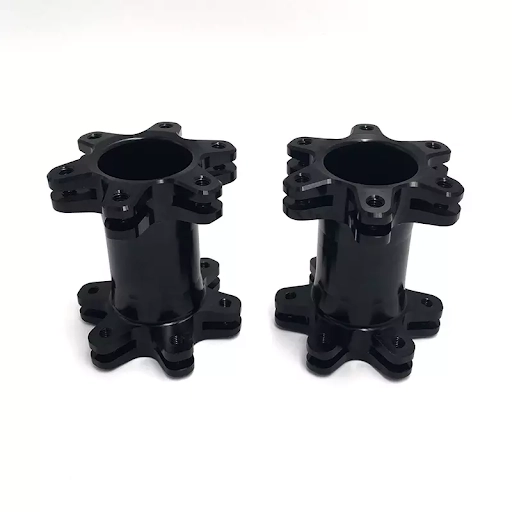

Tips for Delrin Machining
Keep it cool: Delrin is sensitive to heat. When machining Delrin you can use coolant to prevent it from warping or melting. Remember air-cooled tools are preferable to liquid coolants, as liquid coolants can cause Delrin to absorb moisture.
Use Sharp tools: When machining Delrin, it’s important to use sharp cutting tools with a high clearance angle. This will help to reduce heat generation and chip formation.
Feed rate: Use a slow feed rate and high cutting speed when machining Delrin. This will help to produce a clean finish and prevent the material from overheating.
Avoid tight tolerances: Delrin can be slightly elastic, so it’s important to avoid tight tolerances when machining this material.
Separate your tools: If you’re using the same tools to machine Delrin and other materials, such as aluminum, it’s important to clean the tools thoroughly between each use. Aluminum can transfer to Delrin and cause it to become discolored or pitted.
Technological Advancements in Delrin Machining
Advanced CNC Machining
The use of state-of-the-art CNC machines has enhanced the precision and efficiency of machining Delrin. Multi-axis machining capabilities allow for the production of highly complex parts with minimal manual intervention.
CAD/CAM Integration
The integration of Computer-Aided Design (CAD) and Computer-Aided Manufacturing (CAM) systems streamline the design-to-production process, ensuring accuracy and reducing lead times.
Tooling Innovations
Advances in cutting tools and machining techniques have improved the quality and speed of Delrin machining. Specialized tools designed for plastics minimize heat generation and prevent material deformation.
Automation
Automated machining processes, including the use of robotics, enhance production efficiency and consistency, allowing for high-volume manufacturing without compromising quality.
Hybrid Manufacturing
Combining traditional machining with additive manufacturing (3D printing) allows for rapid prototyping and the creation of parts with complex internal structures that would be challenging to machine alone.
Delrin Machined Parts Manufactured by Petron Thermoplast
These parts are tailored for various industries requiring high precision, durability, and low friction, perfect for both industrial and mechanical applications.
- Custom Delrin Bushings
- Delrin Gears
- Delrin Bearings
- Delrin Rollers
- Delrin Spacers
- Delrin Couplings
- Delrin Seals
- Delrin Valves
- Delrin Shafts
- Delrin Pulleys
- Delrin Washers
- Delrin Insulators
- Delrin Housings
- Delrin Pins
FAQs
- What is Delrin, and why is it used for machined parts?
Answer : Delrin, also known as Polyoxymethylene (POM), is a high-performance engineering thermoplastic known for its excellent mechanical properties such as high stiffness, low friction, and good dimensional stability. It is used for machined parts because it offers a good balance of strength, durability, and ease of machining, making it ideal for precision components like gears, bearings, bushings, and fasteners.
2. What are the benefits of using Delrin over other plastics?
Answer: Delrin provides several advantages over other plastics, including:
• High Strength and Rigidity: Delrin maintains its structural integrity under load.
• Low Friction and Wear Resistance: Ideal for parts requiring smooth motion, such as bearings and gears.
• Dimensional Stability: Holds tolerances well during machining and usage.
• Chemical Resistance: Resistant to various solvents, fuels, and oils.
• Ease of Machining: Can be precisely machined with standard tools and equipment, resulting in high-quality parts.
3. What tolerances can be achieved with Delrin machined parts?
Answer: Delrin offers excellent dimensional stability, allowing for tight tolerances in machined parts. Standard tolerances of ±0.005 inches (±0.127 mm) can easily be achieved, and tighter tolerances can be obtained with specialized machining techniques.
4. Is Delrin suitable for food-grade applications?
Answer: Yes, Delrin is available in food-grade formulations that are FDA compliant. Food-grade Delrin is commonly used in food processing equipment, conveyor parts, and other components that come into contact with food products due to its low friction, ease of cleaning, and non-toxicity.
5. How does Delrin compare to metals in terms of performance?
Answer: Delrin provides many advantages over metals for certain applications, including:
• Lighter Weight: Delrin is significantly lighter than metals, reducing the overall weight of components.
• Corrosion Resistance: Unlike metals, Delrin does not corrode or rust, making it suitable for wet and corrosive environments.
• Self-Lubricating Properties: Delrin has low friction and wear, reducing the need for lubricants in moving parts.
• Lower Cost: Delrin is generally more cost-effective than metals and offers comparable performance for many applications.
6. What are the chemical resistance properties of Delrin?
Answer: Delrin is resistant to many chemicals, including solvents, fuels, oils, and alcohols. However, it may be sensitive to strong acids and bases, as well as certain oxidizing agents. It is important to verify compatibility with specific chemicals before using Delrin in chemically aggressive environments.
7. What are the common applications of Delrin machined parts?
Answer: Common applications of Delrin machined parts include:
• Gears and Sprockets: Low friction and wear resistance.
• Bearings and Bushings: Smooth movement with minimal lubrication.
• Fasteners and Clips: High strength and stiffness.
• Valve Components: Excellent chemical and wear resistance.
• Conveyor Parts: Food-safe, durable, and easy to clean.
• Automotive Parts: Lightweight, wear-resistant components for various mechanical systems.
Types of Delrin Material
These different types of Delrin materials allow for customization depending on the application’s requirements, such as wear resistance, chemical compatibility, strength, and compliance with regulatory standards. Delrin (POM) is available in various grades to meet different application requirements. These types include:
- Delrin Homopolymer (Acetal Homopolymer)
- Delrin Copolymer (Acetal Copolymer)
- Delrin AF (Acetal Homopolymer + PTFE)
- Delrin Glass-Filled
- Delrin UV-Resistant
- Delrin FDA Compliant Grades
- Delrin Antistatic
Delrin machined parts offer a unique combination of durability, precision, and aesthetic appeal, making them an excellent choice for a wide range of applications. By incorporating Delrin components into your products, you can ensure high performance and reliability, which will enhance customer satisfaction and build trust in your brand. The superior quality of Delrin parts will also reduce maintenance costs and downtime, leading to greater efficiency and productivity. Ultimately, leveraging the benefits of Delrin machined parts will help your business grow by delivering exceptional products that stand out in the market.
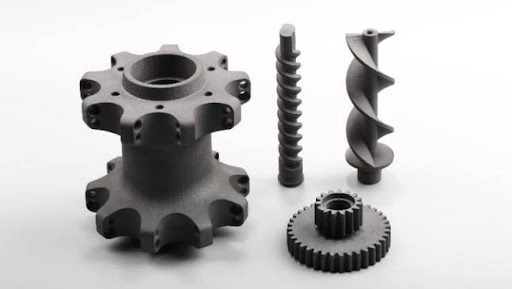
Conclusion
Delrin machined parts – Petron Thermoplast offers a premium solution for industries that demand high performance, precision, and reliability. Known for their exceptional strength, wear resistance, and low friction properties, Delrin parts excel in a wide range of applications—from automotive and electronics to food processing and industrial machinery. Petron Thermoplast ensures that each part is carefully engineered to deliver optimal performance, making them a trusted partner for customers seeking durable, cost-effective, and high-quality thermoplastic components.
Flexible Plastic Tubing (Coils)
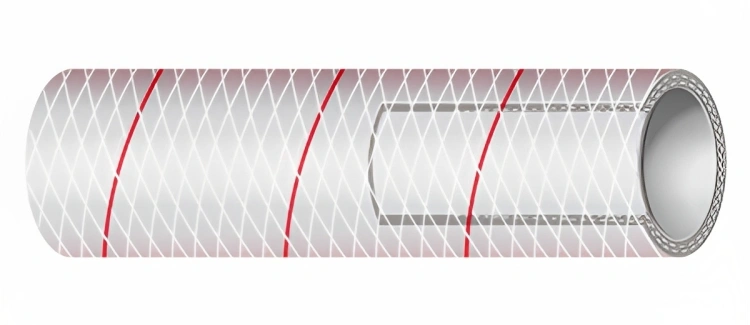
6701 – Clear Unreinforced PVC
Clear plastic tubing is what we often stock. utilised frequently for applications involving low pressure solids, liquids, and gases. For applications requiring food contact, PVC tubing has been approved. temperature range of -15 to +60 degrees Celsius.
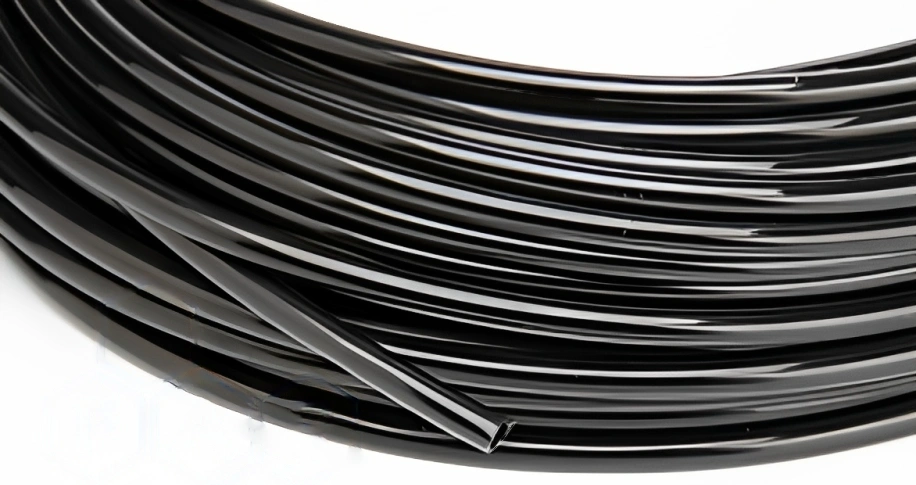
6710 – Nylon
Nylon-based 6710 is flexible, lightweight, has good mechanical strength, and can be supplied in both metric and imperial sizes. It is produced in a variety of colours. -40°C to +80°C in the temperature range.

6711 – Polyurethane
An elastic thermoplastic polyurethane with a hardness of 55°D. Similar to nylon, polyurethane tubing comes in a variety of colours and has a high level of wear and abrasion resistance. temperature range of -50 to +55 degrees Celsius.

6712 – PTFE
A flexible PTFE tube with good resistance to ozone, chemicals, and high temperatures. 6712 also has outstanding non-stock qualities like other PTFE materials. range of temperatures from -70°C to +265°C.

6713 – LDPE
Low density polyethylene is used to create the 6713, a low pressure, food-approved pneumatic tube. Excellent resistance to chemicals, water, and organic salt solutions. temperature range of -20 to +50 degrees Celsius.

6719 – MDPE
An acceptable medium density polyethylene for food. It has the same chemical and organic salt resistance as LDPE. A higher operating pressure than in 6713 is provided by the increased density. temperature range of -20 to +50 degrees Celsius.
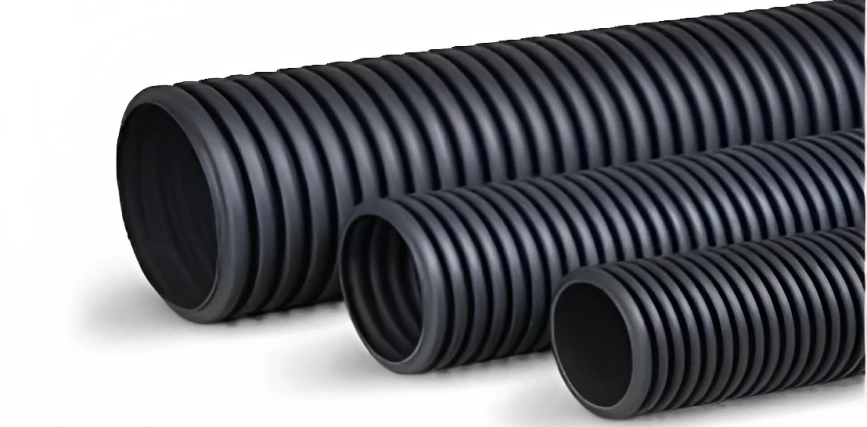
6720 – HDPE
High density polyethylene (HDPE), a flexible material, is frequently utilised in low pressure pneumatic air and water conveyance applications. Its working pressure is greater than that of 6713 and 6719. temperature range of -20 to +50 degrees Celsius.
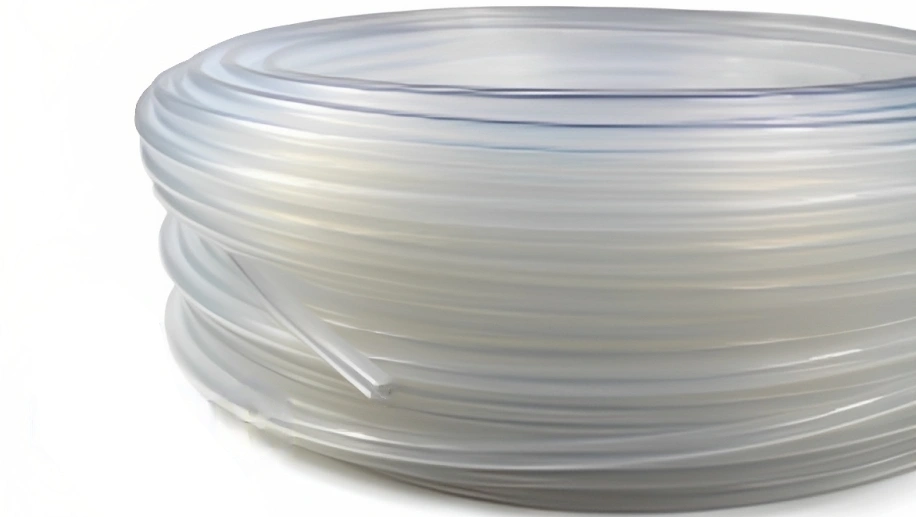
6723 – PFA
It is comparable to PTFE in that it has unrivalled non-stick qualities, exceptional chemical resistance, and strength at high temperatures. FDA-approved for use with food. 260°C temperature range, from -260 to +260.

6724 – Nylon Tubing (Food Quality)
Manufactured from FDA-approved nylon 12, which outperforms nylon 6710 in terms of chemical resistance, optical clarity, and mechanical qualities. -40°C to +110°C in the temperature range.
